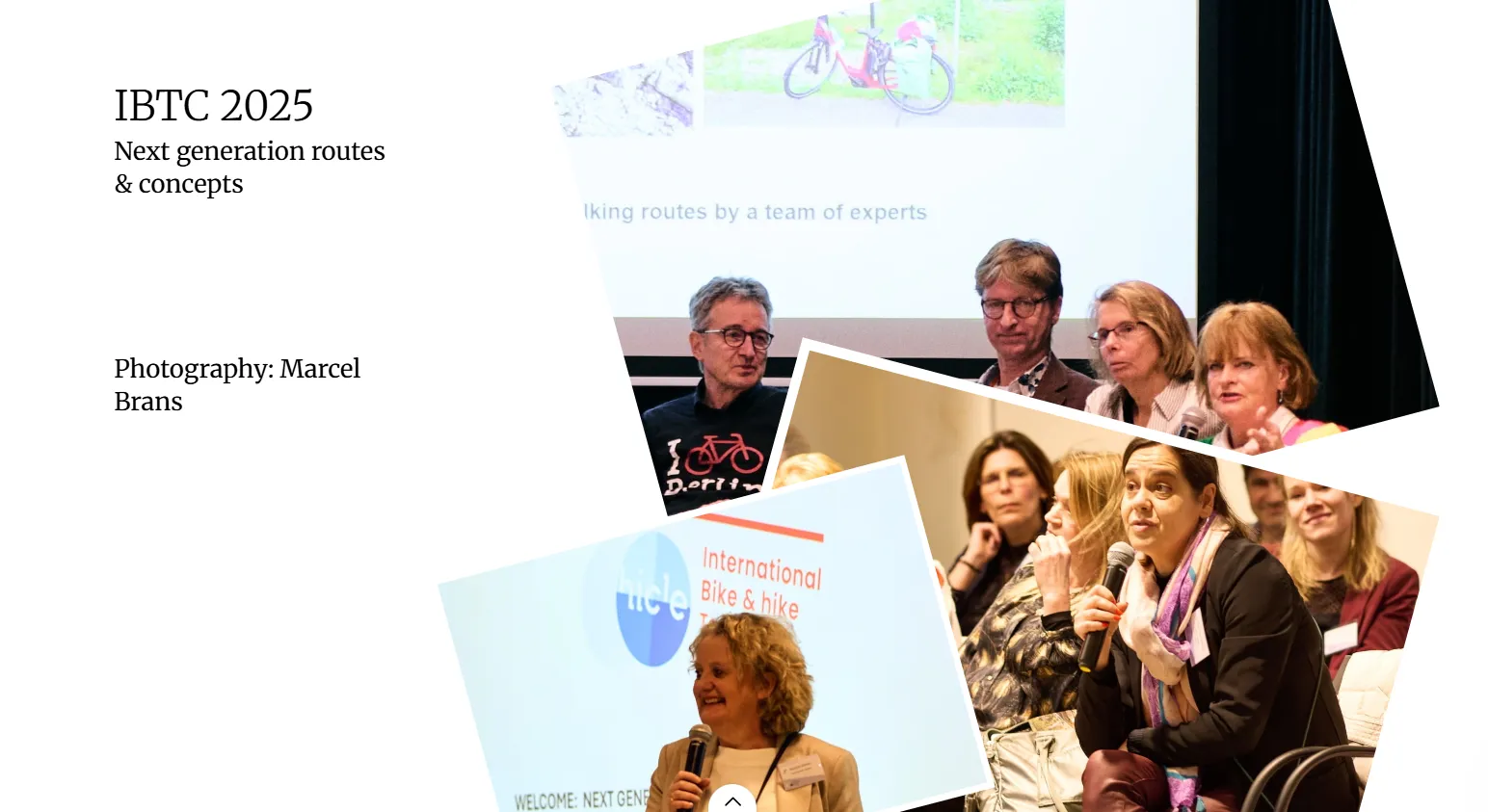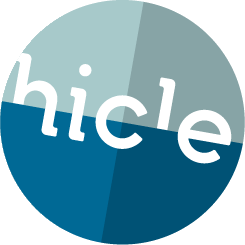
Recap IBTC 2025
Inspiring New Routes and Concepts
in Bike & Hike Tourism
On Thursday, February 13, Conference Center Domstad in Utrecht was the vibrant hub for the fourth edition of the International Bike and Hike Tourism Conference (IBTC). With the theme “Next generation Routes & Concepts”, more than 90 participants and speakers from 13 European countries and the United States gathered for a day filled with inspiring keynotes, engaging breakout sessions, and valuable networking opportunities. Attendees included professionals from policy, education, regional marketing and promotion, route development, and research.
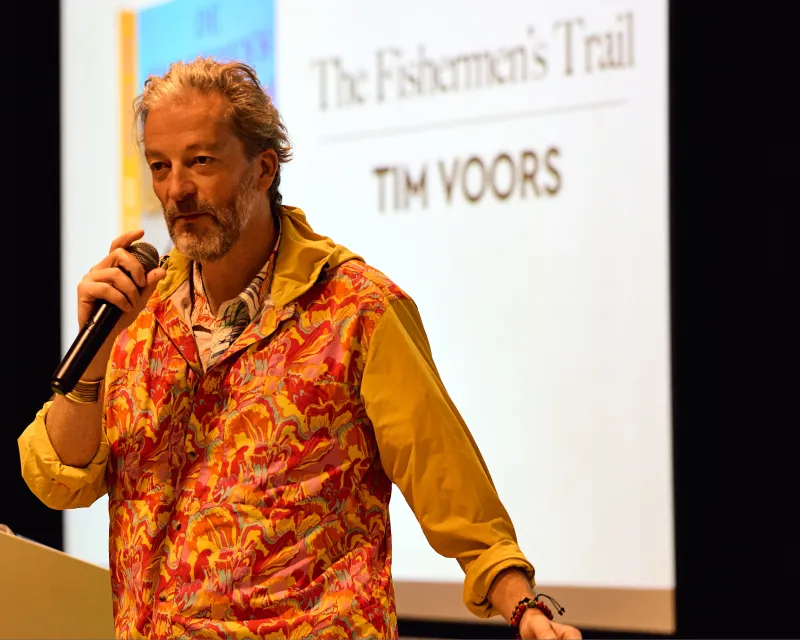
A Keynote to Remember
The conference kicked off with an energizing keynote by Tim Voors, writer and creative director, who shared his experience on the Fishermen’s Trail in Portugal. Walking 80 kilometers along the stunning coastline of the Rota Vicentina with his daughter, Tim reflected on the physical challenges, deep conversations with locals, and the joy of fresh seafood every day.
More than just a travel story, his keynote emphasized the power of walking in a new setting, away from daily distractions, fostering meaningful connections—whether with a child, a friend, or even oneself. His advice for Destination Marketing Organizations (DMOs): provide free, pre-stamped postcards along the route. Inspired by his own journey, Tim continues to receive postcards from those who embraced his idea, a simple yet powerful way to keep the enthusiasm for hiking alive. By the end of his talk, the audience was convinced: gifting yourself a hiking experience is a must.
Engaging Panel Discussion
Moderated by Dr. Nina Nesterova, professor Sustainable Development in Tourism at Breda University of Applied Sciences, the panel featured: Inspiring New Routes and Concepts
in Bike & Hike Tourism
- Frank Hart, Advocacy – Coordinator, Wandelnet (Netherlands)
- Fiona Smart, Owner, Cycling Hotel Mas Pelegri (Spain)
- Christian Tänzler, Spokesperson, VisitBerlin & Board Member, German Cyclist Association (ADFC Germany)
- Moniek Hover, Professor of Storytelling, Breda University of Applied Sciences (Netherlands)
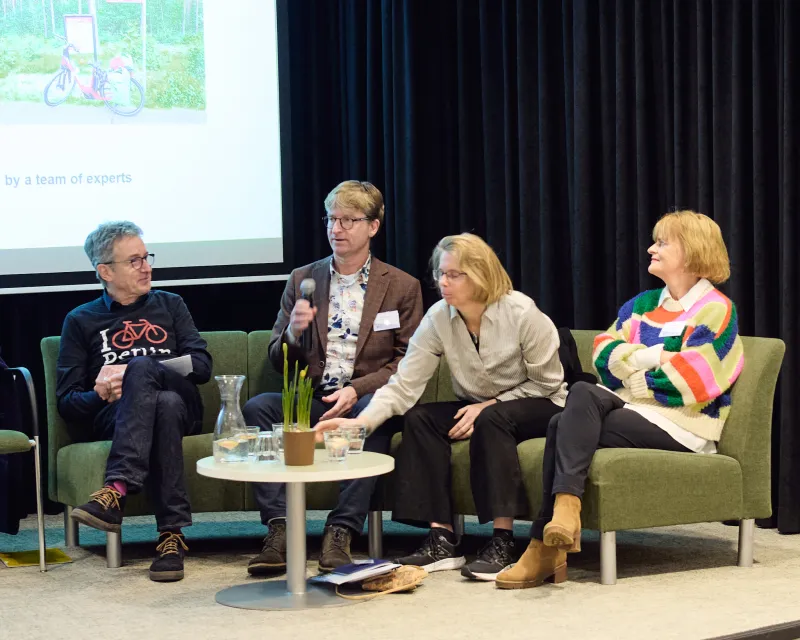
Key Takeaways from the Discussion:
- Walking and cycling are cornerstones of sustainable tourism, promoting well-being while minimizing environmental impact.
- The shift from traditional point-to-point routes to flexible networks allows for personalized travel experiences.
- Storytelling enhances tourism, creating deeper emotional connections with destinations.
- Climate change demands adaptability, as routes must evolve to protect biodiversity and fragile ecosystems.
- The EU Cycling Declaration signed by Germany, the Netherlands, and others signifies a growing commitment to cycling infrastructure improvements.
- Technology, including AR, VR, and audio guides, is gaining traction, but authentic, sensory-rich experiences remain irreplaceable.
- Collaboration is key – tourism boards, urban planners, transport policymakers, and local businesses must work together to create sustainable and engaging routes.
Insightful Breakout Sessions
The afternoon program featured six engaging breakout sessions, each offering valuable insights into route development and marketing strategies.
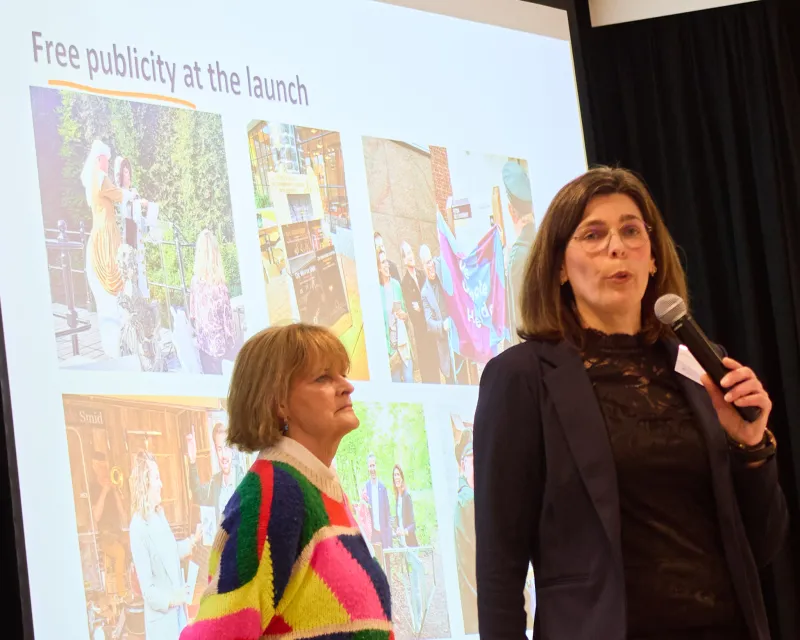
Storytelling & Routes
Led by Moniek Hover (Professor of Storytelling) and Veronique de Kort (Brabant Partners), this interactive session provided a seven-step approach to crafting story-based routes. Key elements included entertainment, immersion, stimulating imagination, and “learning without being taught.” Examples like The Dancing Cats of Bergeijk illustrated how storytelling enhances visitor engagement. Ongoing maintenance and targeted marketing were highlighted as essential for long-term success.
The Success of Vias Verdes as a Tourism Product
Marion Hoogwegt (MaxperienceSpain.com) and Marjan Gielen (Destinationmakers.nl) explored how Spain’s 3,500 kilometers of Vias Verdes (Greenways) have become a pillar of regional tourism development. These routes contribute to local economies through initiatives such as converting old railway stations into hotels, bike rentals, and restaurants. Each euro invested in cycling generates a return of 4-5 euros, supporting sustainable tourism and the circular economy through recycling, reusing, and restoring railway heritage. With over 5 million users in 2023, the impact of Vias Verdes continues to grow, with increasing interest from tour operators in Belgium and the Netherlands.
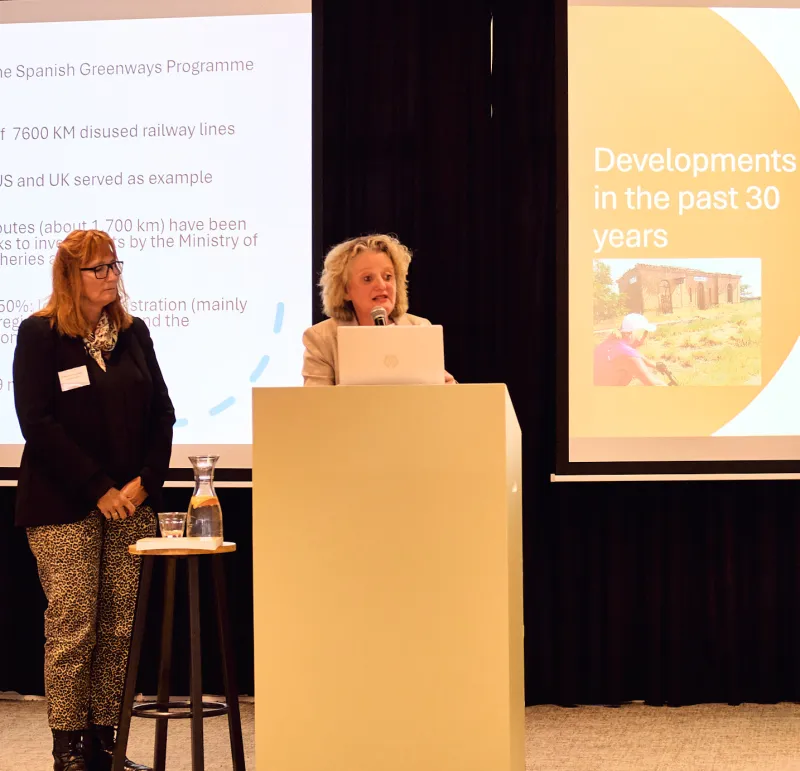
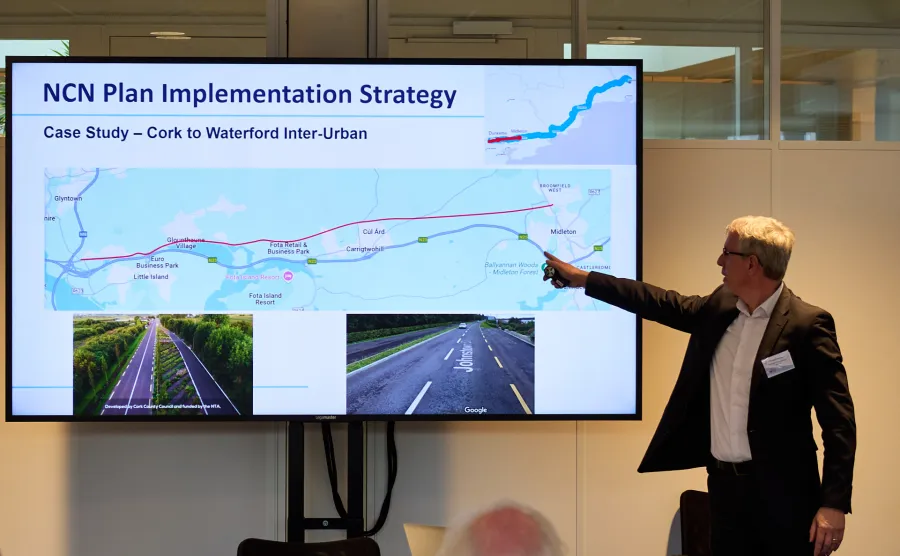
Ireland’s new National Cycle Network
Richard Bowen, Manager at Transport Infrastructure Ireland (TII), informed visitors about Ireland’s ambitious National Cycle Network (NCN) project, which will cover 3,500 km and link some 200 towns and villages. Existing greenways and EuroVelo routes will be integrated into the network. Richard explained the implementation strategy behind the project, from developing a vision, surveying (potential) users, consulting key stakeholders, selecting safe, cycle-friendly routes and promoting them to the public, complemented by case studies of some of the routes. If all goes to plan, the network will be fully implemented across the green island by 2040.
The do’s and don’ts of cycling promotion
Christian Tänzler, spokesperson for visitBerlin, listed the do’s and don’ts when it comes to bicycle promotion and bicycle policy in a large city like Berlin. The do’s include the development of high-quality, bicycle-friendly infrastructure and political support, as well as the positive effect of theme routes and good, long-term cooperation between stakeholders. Tänzler also learned the don’ts from the sometimes unruly practice. If there is little political support, infrastructure is not well maintained, stakeholders do not cooperate well, funding is short-term, and target groups are not well defined, many cycling projects fizzle out after a few years.
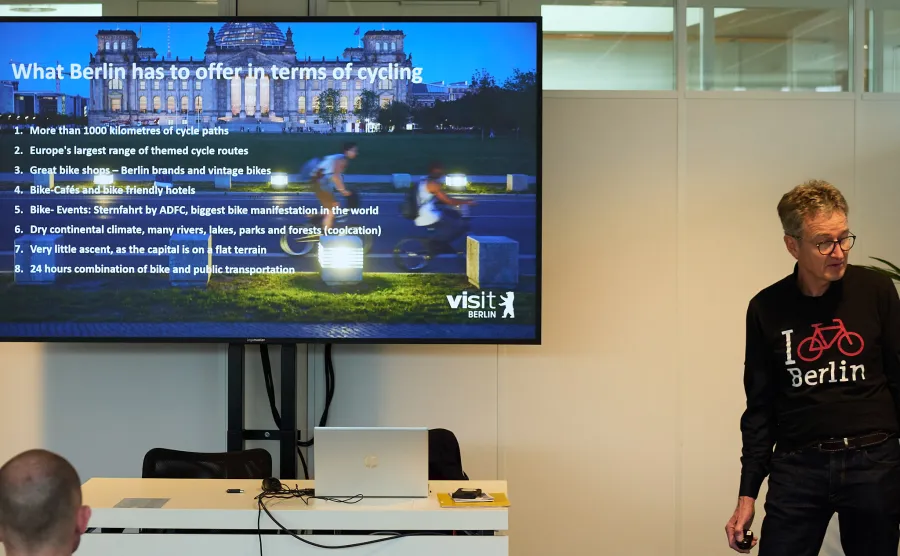
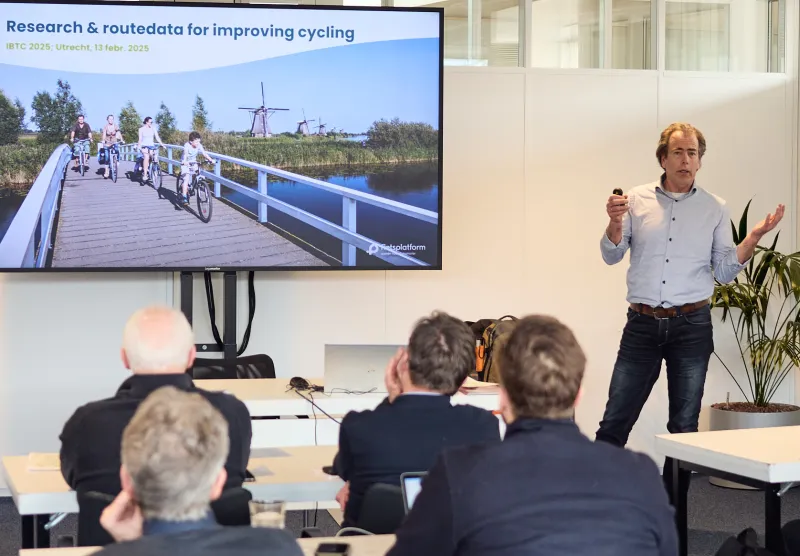
Research as a basis for improving routes
The Dutch organisations Wandelnet (walking net) and Fietsplatform (cycling platform) collect and analyse a lot of research data, which they use to advise on how to improve cycling and walking networks. In a breakout session, Frank Hart (Wandelnet) and Eric Nijland (Fietsplatform, photo) also pointed out the importance of geodata from partners such as Strava or RouteYou, which allow you to see which routes are frequently used (heat maps), and the benefit of a central route database, which keeps route information up to date and consistent across different sites and users of the route data.
Micro Adventures: Exploring the Unknown
In an inspiring closing session, Brigitte Ars (author, researcher, and host of Avontuurlijk Leven Podcast) introduced the concept of micro adventures – short, intense experiences that push travelers just beyond their comfort zones. Whether it’s a one-to-three-day cycling, hiking, or camping trip, the focus is on creating transformative moments close to home seeking the unknown into the known. Participants brainstormed micro-adventure ideas tailored to their regions, proving that adventure is often just around the corner.
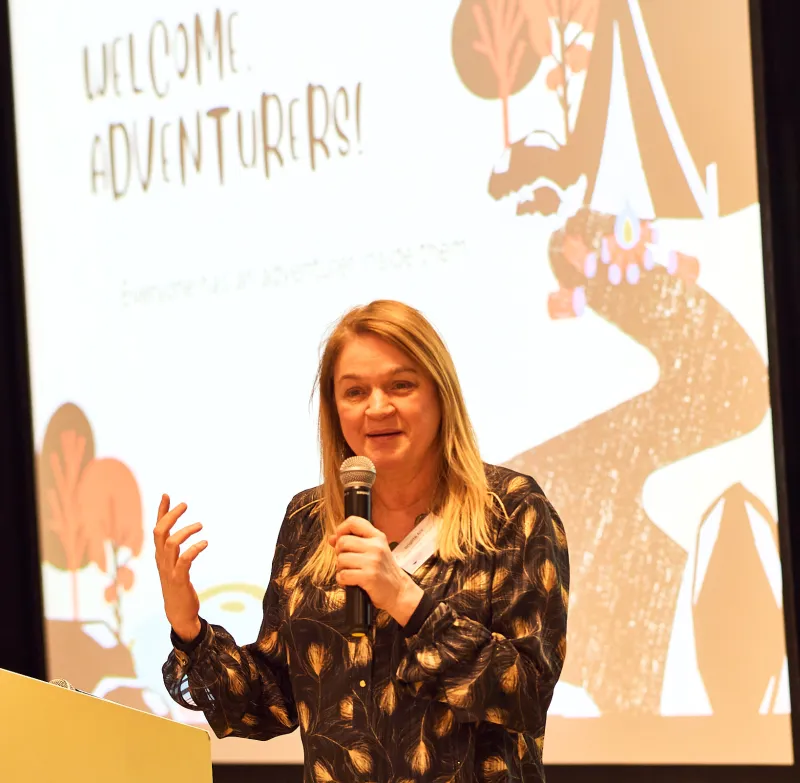
Photo gallery: relive the 2025 edition
